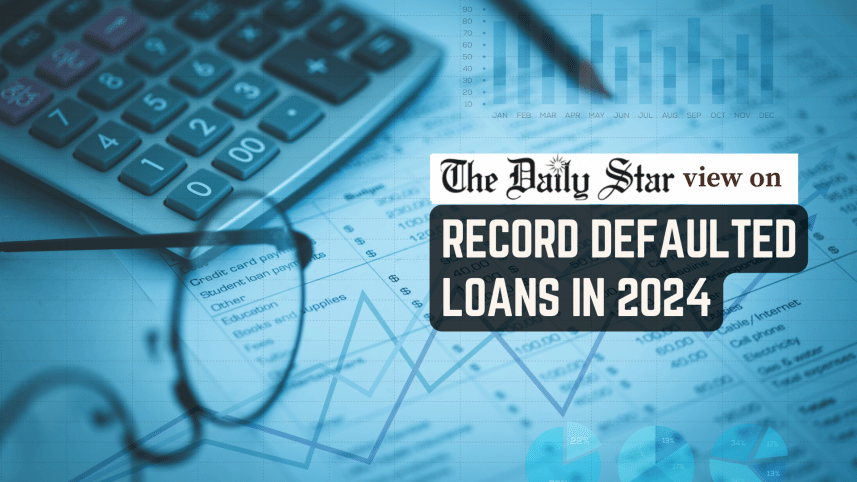End the legacy of banking plunder

It is quite telling that defaulted loans in the banking sector reached a record Tk 3,45,756 crore by the end of 2024, as per the latest data from Bangladesh Bank. A major factor behind this rise is the long-overdue exposure of financial corruption and cover-ups under the former regime. For years, as non-performing loans (NPLs) continued to rise, we repeatedly pointed out how the Awami League government was using various state and non-state entities to obscure the true extent of NPLs through accounting manipulation. Financial fraud was concealed through deceptive tactics, and the lack of transparency made it difficult to assess the true condition of our banks, even though the public had long suspected the severity of the crisis.
The interim authorities deserve credit for bringing the truth to light. However, this may have been the easier part. The real challenge lies in reversing this trend and recovering as much of the lost money as possible, whether through selling collateral or other means. The situation has been particularly complicated by the massive defaults of some borrowers, such as S Alam Group and Beximco Group, following Awami League's departure. As a result, total defaulted loans have reached an unprecedented level. According to the central bank, the defaulted loan ratio for state-run banks stood at 42.83 percent, while that of private sector banks was 15.60 percent.
Among state banks, Janata had the highest volume of bad loans at the end of last year, with as much as 66.8 percent of its total outstanding loans classified as non-performing. Of Janata's Tk 67,300 crore in defaulted loans, approximately Tk 23,000 crore belongs to Beximco, which was classified as defaulted in the last quarter of 2024. Meanwhile, S Alam Group's defaulted loans at Janata Bank reached Tk 10,200 crore.
Across the sector, similar looting by oligarchs connected to the fallen regime has left a number of banks extremely vulnerable. Even more concerning is the risk that legitimate businesses, struggling as they are in a slow economy, may find it difficult to repay their loans, further worsening the NPL crisis. Under these circumstances, it is crucial for the authorities to send the right signals to help restore confidence in the sector.
The authorities must work diligently to ensure that banks recover risky loans and that stolen funds parked abroad are reclaimed through diplomatic efforts. They also must restore oversight mechanisms and regulatory institutions that have become dysfunctional, ensuring they serve the interests of the nation rather than political elites. They also must hold to account those responsible for the crisis—including corrupt bankers, policymakers, and borrowers—so that such reckless mismanagement is not repeated again.



 For all latest news, follow The Daily Star's Google News channel.
For all latest news, follow The Daily Star's Google News channel. 
Comments